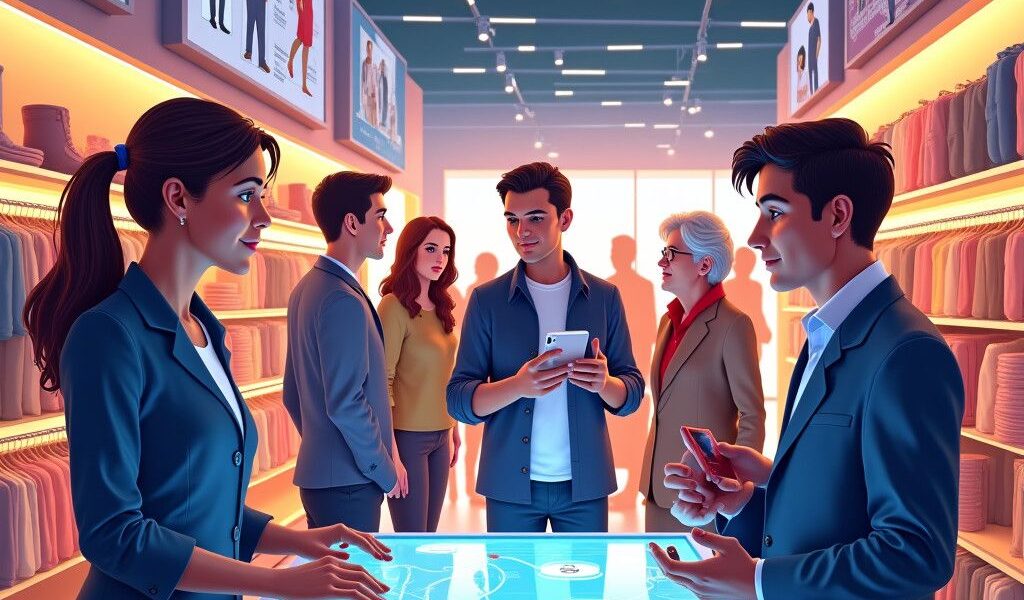As artificial intelligence continues to reshape the retail landscape, understanding consumer sentiment is crucial for success. Despite the rapid integration of AI technologies—from personalized recommendations to automated customer service—many shoppers remain skeptical about the tangible benefits these technologies provide. Recent research conducted by Zoho Survey reveals that 53% of respondents perceive AI-driven personalisation as having little to no impact on their shopping experiences.
The integration of AI in retail is broad, spanning from enhancing in-store experiences to improving online interactions. For instance, brands like Amazon have successfully leveraged AI, attributing 35% of their sales to personalization strategies. By using sophisticated algorithms to recommend products tailored to individual shopping habits, they have set a high standard for expectation. However, despite this success at a macro level, many consumers are not experiencing the desired enhancements in their shopping journeys.
The Zoho survey indicates that only 8% of respondents feel that AI personalisation has significantly improved their shopping experience, while 29% say it has somewhat enhanced it. This stark contrast between the effectiveness of AI for brands and its perceived benefits by consumers raises questions about existing implementations. The gap suggests that retailers may not be fully addressing consumer needs or expectations.
Interestingly, while frustrations stemming from AI are generally low—78% of respondents did not express any frustration—there remains a significant portion of consumers, 22%, who have encountered difficulties. This challenge is particularly evident when AI fails to understand customer queries in automated customer service situations. For many consumers, the absence of human engagement in these interactions can lead to dissatisfaction. In fact, the survey highlights that 35% of participants deem it essential for brands to provide human representatives for customer service instead of solely relying on chatbots or automated systems.
The findings also shed light on the consumer preference for human insight over AI-generated recommendations. A resounding 73% of respondents would rather have human touchpoints in their shopping experience, emphasizing the importance of personal connection in retail interactions. Only a mere 7% of consumers express full trust in AI-based recommendations, indicating a distrust towards automated solutions.
Turning to the positive side, 62% of those surveyed reported favorable experiences with advanced retail functions, such as AI-driven product recommendations and self-checkout kiosks. These features enable a quicker and more efficient service experience, pointing to the potential of AI in enhancing operational efficiency. Yet, the dissatisfaction reported by the 9% of respondents who found chatbots and automated customer service frustrating highlights the need for refinement in these AI systems.
Sachin Agrawal, Managing Director of Zoho UK, underscores that while AI has proven to be a beneficial tool, it is not fulfilling consumer expectations for meaningful and tailored interactions. He emphasizes the need for businesses to look beyond the technological hype and focus on customer-centric strategies. This focus entails mapping out customer touchpoints, evaluating digital maturity, and optimizing areas where AI genuinely adds value. Such an approach can assist retailers in exploring the potential of AI while setting moderate expectations for its outcomes.
With the Christmas season approaching, retailers have a unique opportunity to utilize AI to streamline shopping experiences. However, Agrawal points out that AI’s role should transcend efficiency; it should aim to create personalized interactions that respect consumer privacy and complement human touchpoints. If shoppers do not perceive benefits, it may be time for retailers to rethink their deployment strategies for AI technologies.
The insights from the Zoho survey, conducted between October 7 and 12, 2024, with a diverse sample of 500 participants, reflect a complex landscape where retailers need to balance technology with the human element. This nuanced understanding of consumer sentiment can pave the way for more effective AI integration in retail, ensuring that innovation aligns with customer expectations.
As retailers prepare for the busy shopping season ahead, acknowledging these insights can help them refine their strategies. Ultimately, creating an AI-powered retail experience that resonates with customers requires ongoing evaluation, adaptation, and a deep understanding of consumer needs.












